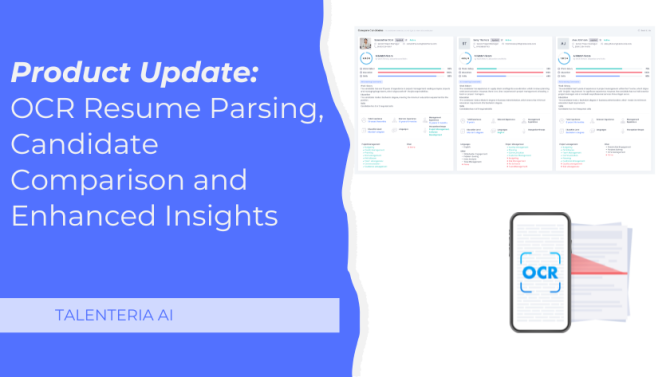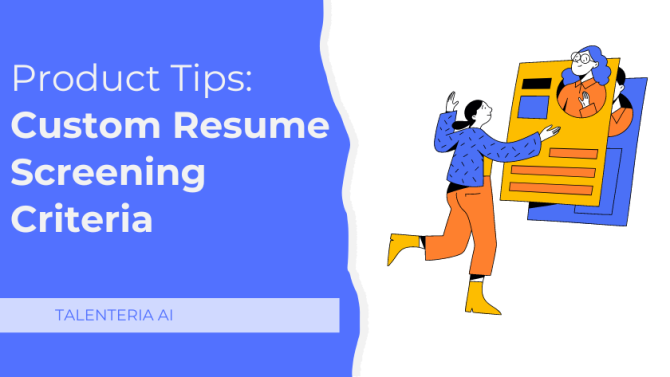
Job requirements are the qualities, skills, and experiences that an employer deems necessary in a potential employee. Usually, job advertisements include lists of such requirements, detailing precisely the kind of person the employer is looking to fill the position.
This article will explain a little more about what job requirements are and how they work; we will also give examples of different types of employment requirements. It will also explain how you can tell if you meet the job requirements for a role.
A Brief Definition
As mentioned above, job requirements are the qualities, skills, and experiences an employer seeks in potential candidates. In the eyes of the employer, prospective employees must meet these selection criteria to achieve a satisfactory performance level.
Job requirements help prospective candidates understand what would be expected of them by their employer - and also give these candidates an idea of whether they are adequately qualified for the role. They are a way of making sure that both employer and employee are on the same page right from the very start. Job requirements benefit everyone!
How Do Job Requirements Work?
Job requirements can be seen as signposts, indicating that job seekers would be a good match for a position. This helps to streamline the job application process. However, for employment requirements to be truly effective, employers should endeavor to delineate what they are looking for in a candidate in their job listing.
Before applying for a position, carefully go over the selection criteria for the role to make sure you can impress upon the employer just how qualified you are for the job. Remember, you’re probably not expected to meet each and every requirement on the list! Rather, some of the criteria listed will be more important than others, and it is these you should prioritize in your application.
Types of Job Requirements
Employment requirements can be broken down into several types. Here is a list of a few you are likely to encounter:
- Work experience: previous experience you have working in similar or related roles.
- Education: the level of education you have attained or the kind of education you have received.
- Skills: soft or hard/technical skills required for the job.
- Personal qualities and attributes: the traits and qualities that would indicate you would fit in well with the company and flourish in the working environment.
- Licenses and certifications: accreditations, personal licenses, or certifications required by the job to make sure prospective employees come up to industry standards.
- Languages: specific languages you might need to be proficient in to carry out your role effectively.
How Can You Tell if You Meet the Job Requirements?
As mentioned above, it’s unlikely an employer will expect every candidate for the position to meet every single requirement in the job listing. It’s important to put aside some time to consider the selection criteria and figure out which qualifications should get priority and whether or not you have them.
Not sure where to start? Here’s what we advise:
- First, write out a list of the position’s minimum requirements. These include any special skills required to fill the role, licenses or certification, or, generally, any requirements that include words like “should” or “must” in them.
- Try to determine which requirements are preferred. Certain qualifications, for example, may be described as “preferred but not necessary” in the job listing.
- Determine what qualities the employer seems to be looking for. Keep a lookout for requirements explaining what “the ideal candidate” has or is. Some job listings may even list qualities they are looking for in a prospective employee.
- Identify and tick off which of the minimum requirements you think you meet. Do you have experience in a related position? Do you have qualifications in a relevant field? Do you have special knowledge and specific skills you can bring to the table?
- Finally, also determine what traits you have that would mark you out as a good candidate for the job. Are you creative? Passionate? Good at working in a team?
After you have isolated these requirements and qualities, you’ll have a good idea of whether or not you meet the selection criteria.
Examples of Job Requirements
To give you an idea of what sort of job requirements you might encounter, here is an example of job requirements for a sales associate:
- High school diploma.
- Prior experience in retail service preferred but not necessary.
- Friendly demeanor.
- Excellent communication skills.
This article has explained what job requirements are, how they work, and how job seekers can determine whether or not they meet them—insights that are crucial to the job-seeking process. For more information and advice on job recruitment, check out Talenteria’s other free access articles over on our blog.





